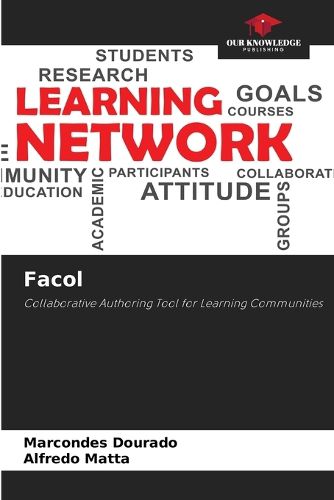Readings Newsletter
Become a Readings Member to make your shopping experience even easier.
Sign in or sign up for free!
You’re not far away from qualifying for FREE standard shipping within Australia
You’ve qualified for FREE standard shipping within Australia
The cart is loading…






This work aims to model a collaborative authoring tool for learning communities with characteristics based on studies of the theory of knowledge and the modeling of human interactivity. The study also addresses the technological context of today's society, tending towards the characteristics and attitudes of social subjects, analyzing the importance of socio-interactionist concepts, tending towards the concept of learning communities. The tool is modeled using graphs and diagrams from the Unified Modeling Language (UML), which clearly and precisely present the structure of the system, so that educators and scholars, even without in-depth knowledge of computer science, can understand how the environment works. The idea for this study arose from observing the various software programs developed for distance education courses and it became clear that there are insufficient tools for building collective knowledge, capable of composing a distance education system using a learning community approach.
$9.00 standard shipping within Australia
FREE standard shipping within Australia for orders over $100.00
Express & International shipping calculated at checkout
This work aims to model a collaborative authoring tool for learning communities with characteristics based on studies of the theory of knowledge and the modeling of human interactivity. The study also addresses the technological context of today's society, tending towards the characteristics and attitudes of social subjects, analyzing the importance of socio-interactionist concepts, tending towards the concept of learning communities. The tool is modeled using graphs and diagrams from the Unified Modeling Language (UML), which clearly and precisely present the structure of the system, so that educators and scholars, even without in-depth knowledge of computer science, can understand how the environment works. The idea for this study arose from observing the various software programs developed for distance education courses and it became clear that there are insufficient tools for building collective knowledge, capable of composing a distance education system using a learning community approach.